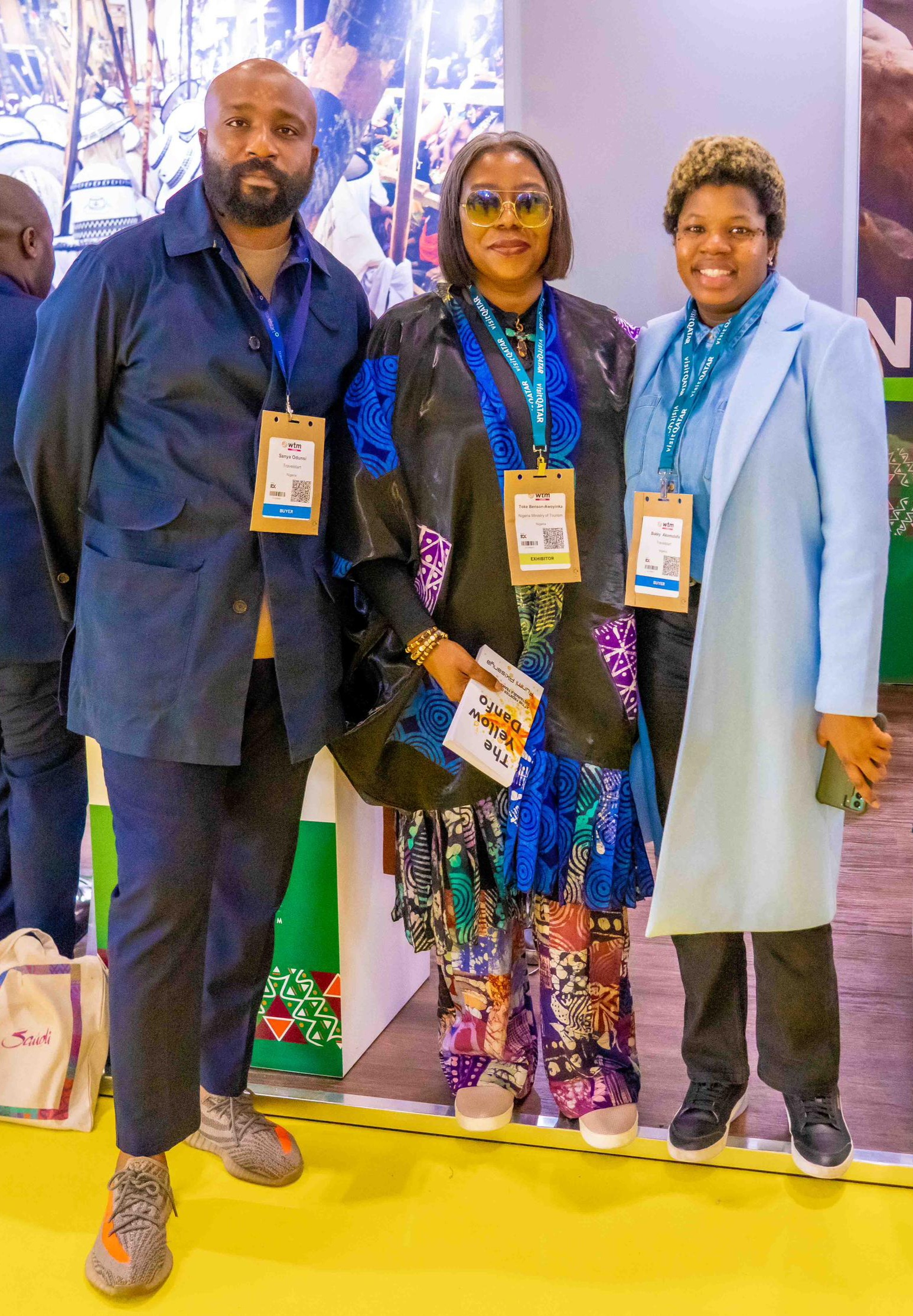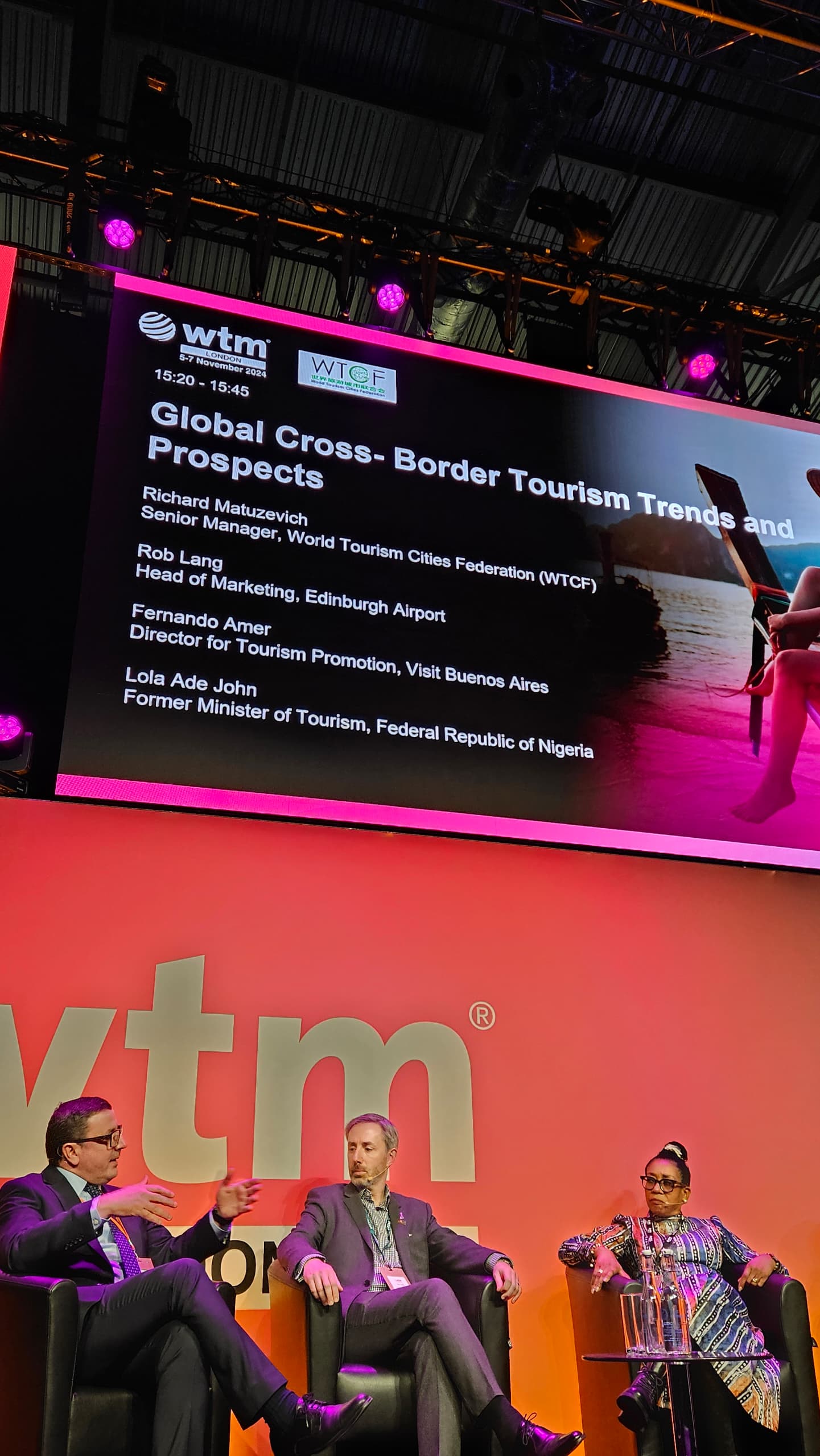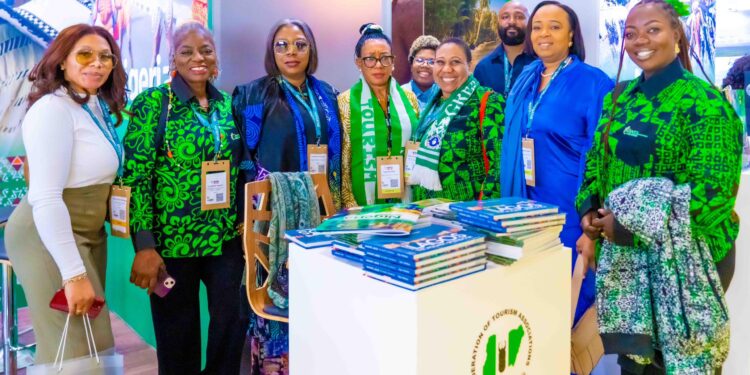The year 2024 has been hard, the issues have been back to back on a global and national level – two wars, more than 70 countries holding national elections, Nigeria’s currency devaluation, high inflation, food costs tripling, and consistently rising petrol prices.
Inevitably, foreign travel is also down! With tightened immigration regulations from our destination markets, notably Canada and the United Kingdom, leaving Nigeria has become just as expensive as living in Nigeria.
Reported data from the Nigeria Civil Aviation Authority (NCAA) suggests that foreign passenger traffic year on year is down by 60% in Lagos and Abuja airports.
Needless to say, the pain is paining us! What presents a challenge in the midst of a chaotic and turbulent year where citizens struggle to pay for basics such as food, also presents an opportunity.

Last week, I attended the World Travel Market 2024 in London. A travel and tourism exhibition that boasts £2.2 billion worth of travel deals concluded the previous year and featured over 4,000 exhibitors, 200 world-class speakers and 184 country delegates this year.
As I walked around, first tired by the sheer size of the place (think four times the size of Tafawa Balewa Square in Lagos), I was also joyous.
For the first time in over a decade, Nigeria had a pavilion, an initiative championed by the Former Minister of Tourism Mrs. Lola-Ade John.
Additionally, the National Association of Nigerian Travel Agents (NANTA), who have been attending during those lull years, was also present with a stand featuring its partners.

It was a good showing from a country whose middle-class income has been completely wiped out by the naira devaluation.
Travel for leisure or “let’s do a quick getaway” passengers almost no longer exist due to the exorbitant price of flights. Not only did Nigeria show up as a lively exhibitor, but we also participated as a speaker.
The Former Minister spoke on a panel titled “Global Cross-Border Tourism Trends and Prospects” where she shared her insights with two other leaders from Scotland and Argentina.
The Lagos State Commissioner of Tourism, Arts and Culture, Mrs. Toke Benson-Awoyinka, was also present, welcoming and showcasing the state’s offering.

Gliding through the other exhibitors like the Maldives, and the Jordan to get to Nigeria in the Africa pavilion, the opportunity for us was glistening – we are in a prime location to push inbound travel. Forget japa! We want reverse-japa, diasporans and other nationalities to visit Nigeria with their hard-earned forex to convert to naira and spend within the Nigerian economy.
This happens through a further reduction in the cost of Nigerian visa fees and further ease of visa-on-arrival, creating seasonal packages that showcase our creativity, nightlife, and concerts like Lagos Fashion Week, Rhythm Unplugged, and Lagos New Year Countdown.
Visitors can also go to Badagry to see the point of no return or fly locally to the newly opened Museum of West African Art (MOWAA) in Benin or our visitors can come earlier in the year and enjoy unique cultural festivals like the Durbar Festival in Kano, the New Yam Festival of the Igbo or give steeze at the next Ojude Oba Festival.
One must not also forget a visit to the beach where cold palm wine is served! This mission will require the collaborative and ringleader efforts of the government to improve safety & security and improve the ease of doing business for the ecosystem.

We will also need banks to do banking by providing cheaper financing options so that private infrastructure can be upgraded to fit the global service standard. In turn, these private businesses will create, market and sell these packages about six to eight months in advance to the diaspora and global audience.
With Detty December upon us, I couldn’t help but imagine a year where this (and more) are executed and Nigeria attracts at least 1% of the total deal volume (£220 million or N49.4 billion) being closed at World Travel Market for inbound travel. Then when these tourists or forex-earning Nigerians arrive, the additional and ancillary revenue will serve as an additional boost to our economy and increase the sector’s GDP contribution to greater than 4%.

At this point, I was hopping and skipping as I salivated over the potential market size. With videos circulating over WhatsApp of buyers, visitors, government officials, etc. flooding to eat Nigerian food and dance to Afrobeats on Day 3, I was further reminded that when there is a casting down, there is also a lifting up.
It won’t be Nigeria to the world anymore; we in Travel & Tourism will champion the bringing of the world to Nigeria.
About the Author: Bukky Akomolafe is an industry expert with over 15 years of experience in diverse industries such as Advertising, Financial Services, Media & Entertainment, and Travel & Tourism working in Europe, Africa and North America. She works in Nigeria as the Country Manager of Travelstart, Africa’s largest online travel agency.













